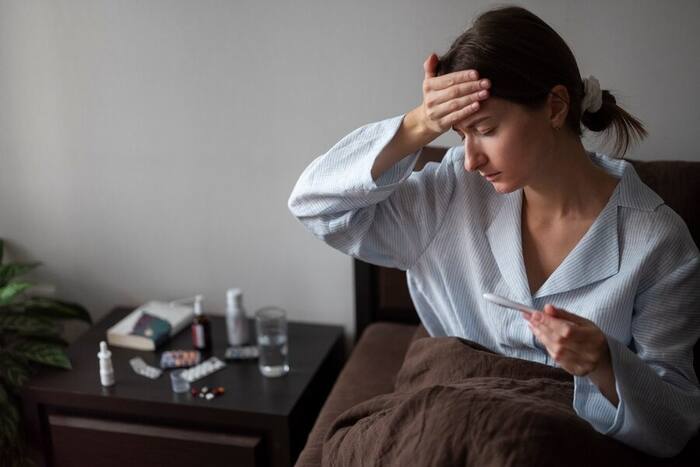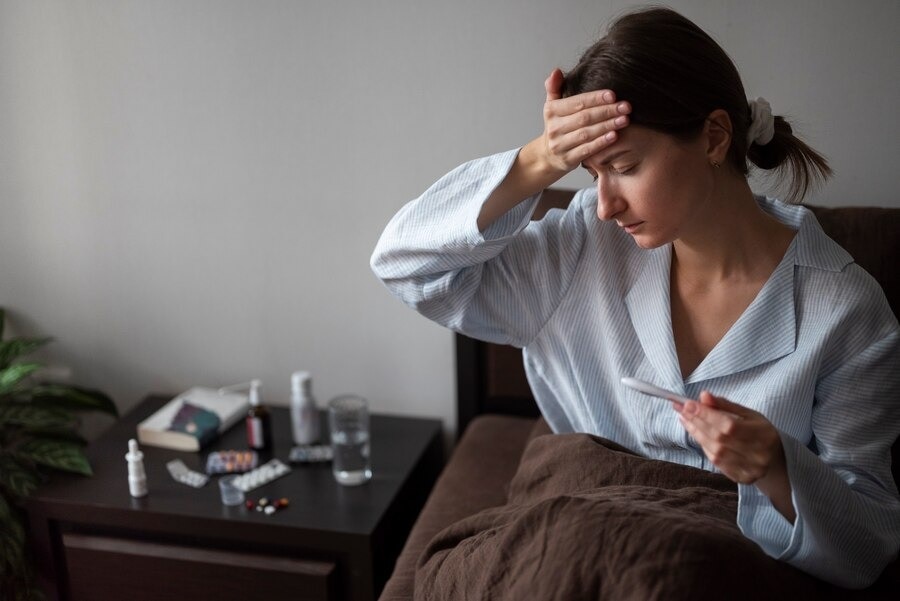Here’s a comprehensive guide to the essential signs and symptoms of monsoon fever and dengue. Read below!

With the arrival of the monsoon season, the risk of various illnesses, including monsoon fever and dengue, increases significantly. It’s essential to Understand the difference between these two conditions to ensure timely and appropriate treatment. Here’s a comprehensive guide to the essential signs and symptoms of monsoon fever and dengue.
Monsoon Fever
Monsoon fever is a type of fever caused by pathogens like bacteria and viruses. The sudden shift in weather from scorching heat to cooler temperatures can hamper your overall health. Monsoon brings the risk of developing health problems like indigestion, fever, rashes, eczema flare-ups, loose stool, vomiting, and body pain. Factors like infections, allergies, poor sanitation, and weather changes can cause monsoon fever. The risk of developing Infections like viral infection, bacterial infection, and mosquito-borne diseases increases during monsoon season. Health concerns like flu and the common cold can easily transmitted due to cold weather and overcrowded places. Cold and damp weather creates a perfect atmosphere for bacteria to breed resulting in typhoid and leptospirosis. One might experience symptoms like fever with persistent high temperature, chills, feeling extremely tired, constant headache, sore throat, vomiting, nausea, diarrhea, runny nose, and extreme body, especially in muscles and joints.
Symptoms of monsoon fever sustain for a few days and start to improve with proper medication and necessary precautions leading to speedy recovery. In some cases the symptoms might worsen, indicating the need for prompt diagnosis. To prevent the risk of getting monsoon fever or viral fever one should avoid eating cold beverages or foods like soda, popsicles, cold water, and iced coffees as it can increase your chances of getting fever and sore throat. Dressing appropriately with thick layers of clothing during cooler temperatures can help maintain body temperature during monsoon. Eating well-rounded meals that contain essential nutrients like minerals, vitamins, proteins, healthy fats, and carbohydrates can potentially strengthen your immune system, reducing the risk of falling ill. Consult your doctor for tailored treatment to effectively combat monsoon fever.
Dengue
Dengue is a waterborne disease which caused by infected mosquitoes called Aedes aegypti mosquito. Dengue fever is a type of viral infection that can be easily transmitted from person to person. One can experience symptoms like sudden fever ranging from 104°F to 40°C, rashes, intense pain behind the eyes, nose bleeding, gum bleeding, nausea, stomach pain, and muscle and joint pain. The intensity of fever can range from mild to severe. It usually lasts up to a week and starts to get better after taking certain medications. One might take a week or more to recover from dengue fever accompanied by fatigue.
In certain cases, your doctor might suggest getting hospitalized for timely intervention. There are no specific antivirals or medications to cure the onset of dengue fever. Getting plenty of rest can help relax your body and improve your overall condition. Being dehydrated can only worsen your symptoms and lead to a spike in fever. Make sure to be hydrated by drinking plenty of fluids and ORS can help maintain dehydration in the body. Mosquito repellent works wonders in safeguarding yourself from getting bitten by infected mosquitoes. Apply a generous layer of mosquito repellent on your clothing before stepping outdoors for better protection. Neglecting the symptoms can only worsen your condition causing increased pain and discomfort. Consult experts or doctors for prompt diagnosis to effectively fight dengue fever. If left untreated it can lead to severe complications like dengue hemorrhagic fever or dengue shock syndrome.

